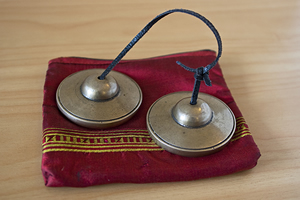Mindful Psychology
Marijke Batenburg
MA (Hons), Dip Clin Psych, Dip Al Counselling, FNZCCP
mindfulness
Risks and Benefits of the MBSR program
Download pdf
Impacts to be considered when thinking of undertaking the MBSR program include:
Risks |
Benefits |
1. Physically
In the MBSR program we do gentle yoga. In the classes, yoga movements are led by the instructor. In the home practice, you will follow instructions on a CD. You will be encouraged to work well within your limits and to take your own authority in making sure that movements are safe and helpful to your body and mind. Even with this amount of care taken, there is a minor risk of injury with any movement practice. |
1.Physiological
MBSR training provides the skills for individuals to learn to regulate their physiology in response to stress. Results include: reduced chronic pain, blood pressure, serum cholesterol levels, and blood cortisol; changes in the way emotions are regulated in the prefrontal cortex and improved immune functioning; changes in Heart Rate Variance – an important factor in stress-related heart disease. |
2. Emotionally
Doing the stress reduction program can be stressful! As we begin to pay more attention to sensations, emotions and thoughts, some people begin to feel more emotionally. At the same time, the practice of mindfulness gives us the skills to be able to regulate and explore emotions. If you have been grappling with drug dependence, psychiatric issues or intense trauma experience, please speak with the facilitator. Together you can explore whether the course is right for you at this time or what other supports you may require in order to get the most out of the program. |
2.Emotional
This program provides a safe and systematic method through which people can develop emotional resilience by training them to tolerate, recognise and regulate their emotional responses. Reduced anxiety, depression and stress, and increased empathy and compassion for oneself and others have all been documented as outcomes. |
3. Time-wise
Practicing mindfulness takes time. As we will be working to change patterns that have probably been around for a while, many experiences of mindfulness and letting go will be required. The skills and knowledge you will be developing can only be learned through direct experience over time. Your willingness to engage in the practice – between 30 mins to one hour a day where possible - is central to experiencing the sense of peace and resilience that the program can offer. You may well want to inform the people you live with that you will be taking time out to do the practice over the eight weeks. And other things may need to be given up to make this time for practice – like TV, reading etc.You will be well- supported by the facilitator and the structure of the course to engage in the home practice daily.
|
3.Cognitive
MBSR training promotes effective use of one's mental capacities by cultivating clarity of perception, sustained focus and concentration, improved memory and self- reflexivity. You will be invited to reflect on your beliefs, attitudes and perspectives and open up to a more flexible, creative use of thinking and contemplation in the solving of problems.
4.Behavioural
This program can work powerfully to help in behavioural change in relation to the health outcomes you set for yourself, such as reducing smoking, over- eating and alcohol use and also exercising more, and eating well. People have reported a greater sense of choice and control in their lives as a result of the training. |
|  |

